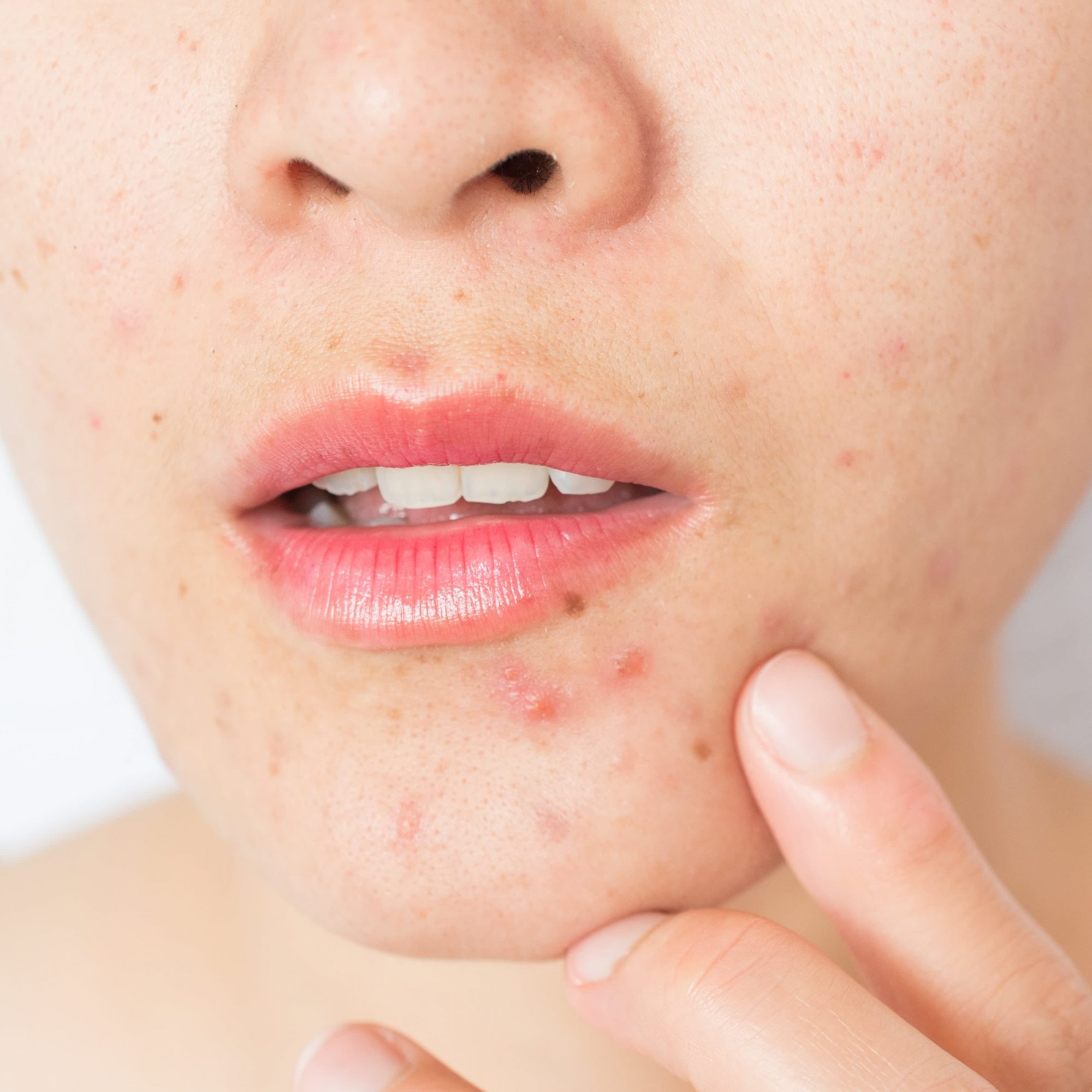
- POPSUGAR Australia
- Beauty
- Here’s What You Should Know About Using Hydrocortisone to Treat Acne
Here’s What You Should Know About Using Hydrocortisone to Treat Acne

Hydrocortisone cream is useful for treating a lot of skin conditions like rashes, eczema, and bug bites, but what you might not know is that it also works as a hack for cystic acne. This type of acne can be characterized by breakouts that are often tender and red, and treating them can often prove difficult. Enter: hydrocortisone cream as a spot treatment.
“If it’s cystic, you can put an over-the-counter hydrocortisone and benzoyl peroxide [cream] on a Band-Aid and apply to area,” dermatologist Dhaval Bhanusali, MD, told POPSUGAR in a previous article.
While the aforementioned trick is helpful, there’s a little more you should know if you’re thinking of using hydrocortisone to treat pimples. Here’s what to keep in mind before trying it yourself, according to a pro.
What Is Hydrocortisone, Anyway?
“Hydrocortisone is a low-strength anti-inflammatory cream in the steroid family that is sold without a prescription,” dermatologist Brandith Irwin, MD, explained to POPSUGAR. It’s a steroid that’s often used to treat a variety of skin issues like itching, swelling, allergies, redness, and anything that might cause discomfort on the skin’s surface. It’s common for dermatologists to administer hydrocortisone shots to patients to help relieve red, irritated pimples, as topical hydrocortisone creams won’t prevent breakouts or eliminate the underlying cause of acne.
How Can You Use Hydrocortisone to Get Rid of a Pimple?
Again, hydrocortisone creams aren’t official acne treatments, so you should talk to a dermatologist about effective alternatives if you’re dealing with blackheads and whiteheads. That said, hydrocortisone can be bought over the counter and safely used to treat inflamed, irritated pimples so long as you’re using a small amount of the product at a time.
“A small amount once or twice a day for three days is fine,” Dr. Irwin said. “After that, stop using it because it can mask the symptoms of more serious problems like staph infections and several other skin diseases.” These typically work better when they’re paired with other treatments like benzoyl peroxide, which can cause redness and irritation when drying out pimples.
Dr. Irwin also noted that if you’re using a hydrocortisone cream and you don’t see results after three days, it’s probably not going to work, and you should contact a dermatologist for something more effective.
What Are the Side Effects of Using Hydrocortisone on Acne?
As mentioned before, one risk you take when using a hydrocortisone product is that, even though it may be reducing redness or irritation, some users who apply too much of the product too often may also experience what Dr. Irwin calls a “rebound effect” that causes skin discolouration and makes the blemish appear even redder than before.
The bottom line is that, while hydrocortisone can be used to treat blemishes, your use of it should be very limited, and you should always try to consult a professional before applying a new treatment to your skin.


